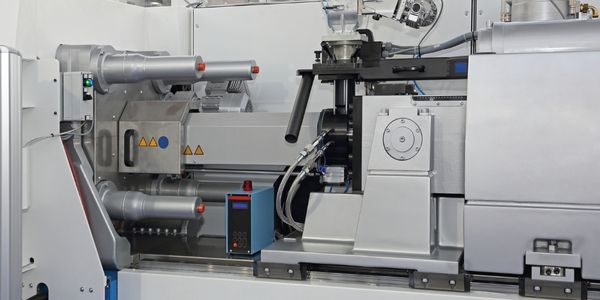Tulip Helps RBW Integrate with Netsuite to Increase Efficiency Across Value Stream
Customer Company Size
Mid-size Company
Region
- America
Country
- United States
Product
- Tulip
- Netsuite
Tech Stack
- ERP Integration
- Digital Work Instructions
Implementation Scale
- Enterprise-wide Deployment
Impact Metrics
- Productivity Improvements
- Customer Satisfaction
Technology Category
- Platform as a Service (PaaS) - Connectivity Platforms
- Functional Applications - Remote Monitoring & Control Systems
Applicable Functions
- Discrete Manufacturing
- Quality Assurance
Use Cases
- Factory Operations Visibility & Intelligence
- Manufacturing System Automation
- Predictive Maintenance
Services
- System Integration
- Software Design & Engineering Services
About The Customer
RBW is a company that specializes in creating unique lighting designs, offering hundreds of different fixtures that are manually built-to-order at their Brooklyn studio. The company is known for its innovative designs and operational excellence, striving to achieve a 10-day lead time for their products. RBW is committed to integrating new technologies to enhance their manufacturing processes and improve efficiency. They pride themselves on being pioneers in smart manufacturing, leveraging tools like Tulip to enhance their operations. As a mid-size company, RBW is focused on improving visibility and data acquisition across their value stream, ensuring that they maintain their reputation for groundbreaking designs and high-quality products.
The Challenge
RBW offers a wide range of unique lighting designs, all of which are manually built-to-order at their Brooklyn studio. The company faces the challenge of managing a high mix of products with short lead times, aiming for an aggressive 10-day lead time. The complexity of their products, combined with the need to keep track of labor time and inventory, made their operations unwieldy, slow, and prone to errors. Previously, they relied on a manual system where operators had to populate UL compliance labels themselves, which was inefficient and error-prone. RBW needed a solution to simplify their shop floor operations while maximizing the utility of their existing system of record, Netsuite.
The Solution
RBW integrated Tulip with their existing Netsuite ERP system to streamline their operations. This integration provides builders with an intuitive tool for exchanging information from back-end inventory and production planning databases, adding an additional layer of production visibility. Tulip automatically pulls the relevant bill of materials and creates standard operating procedures (SOPs) using data stored in Netsuite whenever operators need to generate a new work order. The solution also includes dynamic work instructions apps that guide builders through each order, accessible by scanning a barcode. This user-friendly interface simplifies training and onboarding for new builders, allowing them to quickly adapt to the system. Additionally, RBW developed a picking application that pulls the bill of materials for each work order, guiding builders through the picking process to ensure accuracy. The system allows for rapid iteration and versioning of applications to keep pace with evolving operations, starting with a pilot at two stations and expanding across the entire value stream.
Operational Impact

Case Study missing?
Start adding your own!
Register with your work email and create a new case study profile for your business.
Related Case Studies.

Case Study
Remote Monitoring & Predictive Maintenance App for a Solar Energy System
The maintenance & tracking of various modules was an overhead for the customer due to the huge labor costs involved. Being an advanced solar solutions provider, they wanted to ensure early detection of issues and provide the best-in-class customer experience. Hence they wanted to automate the whole process.

Case Study
Predictive Maintenance for Industrial Chillers
For global leaders in the industrial chiller manufacturing, reliability of the entire production process is of the utmost importance. Chillers are refrigeration systems that produce ice water to provide cooling for a process or industrial application. One of those leaders sought a way to respond to asset performance issues, even before they occur. The intelligence to guarantee maximum reliability of cooling devices is embedded (pre-alarming). A pre-alarming phase means that the cooling device still works, but symptoms may appear, telling manufacturers that a failure is likely to occur in the near future. Chillers who are not internet connected at that moment, provide little insight in this pre-alarming phase.

Case Study
Plastic Spoons Case study: Injection Moulding
In order to meet customer expectations by supplying a wide variety of packaging units, from 36 to 1000 spoons per package, a new production and packaging line needed to be built. DeSter wanted to achieve higher production capacity, lower cycle time and a high degree of operator friendliness with this new production line.

Case Study
Robot Saves Money and Time for US Custom Molding Company
Injection Technology (Itech) is a custom molder for a variety of clients that require precision plastic parts for such products as electric meter covers, dental appliance cases and spools. With 95 employees operating 23 molding machines in a 30,000 square foot plant, Itech wanted to reduce man hours and increase efficiency.

Case Study
Aircraft Predictive Maintenance and Workflow Optimization
First, aircraft manufacturer have trouble monitoring the health of aircraft systems with health prognostics and deliver predictive maintenance insights. Second, aircraft manufacturer wants a solution that can provide an in-context advisory and align job assignments to match technician experience and expertise.

Case Study
Integral Plant Maintenance
Mercedes-Benz and his partner GAZ chose Siemens to be its maintenance partner at a new engine plant in Yaroslavl, Russia. The new plant offers a capacity to manufacture diesel engines for the Russian market, for locally produced Sprinter Classic. In addition to engines for the local market, the Yaroslavl plant will also produce spare parts. Mercedes-Benz Russia and his partner needed a service partner in order to ensure the operation of these lines in a maintenance partnership arrangement. The challenges included coordinating the entire maintenance management operation, in particular inspections, corrective and predictive maintenance activities, and the optimizing spare parts management. Siemens developed a customized maintenance solution that includes all electronic and mechanical maintenance activities (Integral Plant Maintenance).






